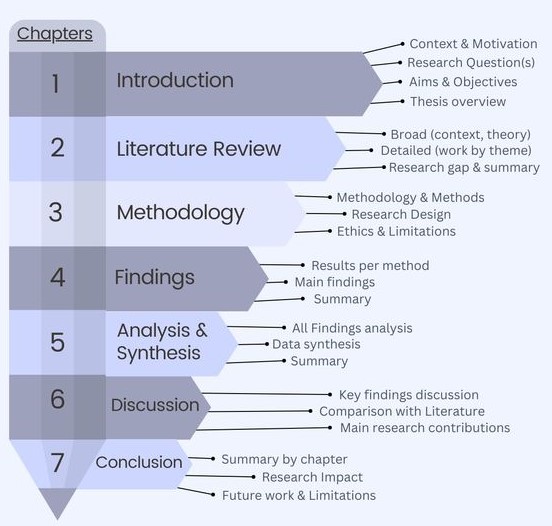The journey of a nursing student culminates in a pivotal moment: the writing of a thesis. Nursing thesis writing is a formidable task, demanding not only a deep understanding of nursing principles but also the ability to weave together research, critical analysis, and a compelling narrative.
This article serves as your guide, offering insights into the process of crafting a compelling nursing thesis that will captivate your audience and leave a lasting impression.
What is a Nursing Thesis?
A nursing thesis is a substantial research project undertaken by a nursing student to demonstrate their ability to conduct independent research and contribute to the body of knowledge within the nursing profession. It’s a culminating experience for graduate-level nursing programs (Master’s or Doctoral), and plays a crucial role in advancing nursing practice and improving patient care.
Here’s what makes a nursing thesis unique:
- Focus on Nursing Issues: The thesis addresses a specific problem or question relevant to nursing practice, patient care, or health outcomes.
- Rigorous Methodology: It utilizes research methodologies aligned with the field of nursing, such as quantitative, qualitative, or mixed methods approaches.
- Original Contribution: The thesis aims to generate new knowledge, insights, or evidence that contribute to the understanding and improvement of nursing practice.
- Defensible Argument: The thesis presents a clear and well-supported argument, based on the findings of the research, that answers the research question and supports the proposed conclusion.
- Extensive Literature Review: A thorough review of existing literature on the topic is essential to establish the context, justify the study’s significance, and identify gaps in knowledge that the thesis aims to address.
Types of Nursing Theses

- Quantitative: Uses numerical data and statistical analysis to investigate relationships between variables.
- Qualitative: Explores subjective experiences, perceptions, and meanings through interviews, focus groups, or observation.
- Mixed Methods: Combines both quantitative and qualitative approaches to gain a comprehensive understanding of the research problem.
Purpose of a Nursing Thesis:
- Advance Nursing Knowledge: Contribute new findings and insights to the field.
- Improve Patient Care: Identify solutions to clinical problems and promote evidence-based practice.
- Develop Research Skills: Provide students with hands-on experience in conducting research.
- Enhance Critical Thinking: Encourage students to analyze complex issues and develop a sophisticated understanding of the nursing profession.
- Prepare for Academic or Research Careers: Lay the foundation for future research pursuits.
The Process:
- Topic Selection: Identifying a relevant and researchable topic within the field of nursing.
- Literature Review: Conducting a thorough review of existing research and relevant literature.
- Research Design: Developing a research plan outlining the methodology, data collection methods, and analysis procedures.
- Data Collection and Analysis: Gathering data and analyzing it to answer the research question.
- Writing and Defending the Thesis: Preparing a written document that presents the research findings, conclusions, and recommendations for future research.
- Defense: Presenting the thesis to a committee of faculty members and defending the research in an oral examination.
A nursing thesis is a challenging but rewarding undertaking that can significantly contribute to the advancement of nursing practice and the improvement of patient care.
Tips for Crafting a Compelling Nursing Thesis
1. Choosing the Right Topic:
The foundation of a successful nursing thesis is a well-chosen topic. It should be something you’re passionate about, as this passion will fuel your research and inspire your writing. To select the perfect subject, consider these factors:
- Relevance: Choose a topic that addresses current issues in nursing, patient care, or healthcare policy. This ensures your research will be relevant and contribute to the advancement of the field.
- Feasibility: Be realistic about the scope of your research. Choose a topic that can be investigated thoroughly within the timeframe and resources available.
- Novelty: Aim to offer a fresh perspective or contribute new knowledge to the existing body of research. This can involve exploring a new aspect of a well-established issue, proposing innovative solutions, or challenging prevailing paradigms.
2. Conducting Rigorous Research:
Once you have your topic, it’s time to embark on the crucial stage of research. This involves delving deep into the existing literature, gathering data, and analyzing your findings:
- Literature Review: This forms the bedrock of your thesis. It’s a comprehensive overview of existing research on your chosen topic, allowing you to identify gaps in knowledge, formulate research questions, and establish a theoretical framework.
- Data Collection: The method of data collection depends on your research design. It could involve surveys, interviews, case studies, or quantitative data analysis.
- Analysis: This involves meticulously examining the data collected, drawing meaningful insights, and formulating conclusions that support your thesis argument.
3. Crafting a Compelling Argument:
The heart of your nursing thesis lies in the argument you present. A compelling argument is not simply a statement of fact but a persuasive case built on evidence, logic, and a clear line of reasoning:
- Thesis Statement: This is the central claim of your thesis, summarizing the main argument you aim to prove. It should be concise, clear, and specific, outlining the core message of your research.

- Supporting Evidence: Each argument needs strong support. Draw upon your research findings, relevant literature, and credible sources to substantiate your claims.
- Logical Structure: Present your arguments in a logical order, building a coherent narrative that guides the reader through your reasoning. Employ transitional phrases to ensure smooth flow and seamless transitions between paragraphs.
4. Mastering the Art of Nursing Thesis Writing:
While research is vital, the ability to communicate your findings effectively is equally important. This involves mastering the art of nursing thesis writing, paying attention to style, organization, and clarity:
- Clarity and Conciseness: Avoid jargon and technical terms that may confuse readers. Use clear and concise language, ensuring your writing is accessible to a broad audience.
- Structure and Organization: Structure your thesis logically, using clear headings, subheadings, and paragraphs to guide the reader. The introduction should provide context and introduce your thesis statement, while the body presents your arguments and supporting evidence, and the conclusion summarizes your findings and implications.
- APA Style Guidelines: Adherence to the American Psychological Association (APA) style is crucial in nursing thesis writing. Follow the specific guidelines for formatting, citations, and references to ensure your work is academically credible and consistent.
5. Crucial Components of a Nursing Thesis:
A well-structured nursing thesis includes essential components that contribute to its overall strength and impact:

- Abstract: This is a concise summary of your thesis, providing a snapshot of your research question, methodology, findings, and conclusions.
- Literature Review: This section provides a thorough overview of existing research on your topic, demonstrating your understanding of the field and establishing a foundation for your research.
- Methodology: This describes your research design, data collection methods, and data analysis techniques, ensuring transparency and reproducibility of your findings.
- Results: This section presents your findings in a clear and organized manner, using tables, figures, and statistical analysis as needed.
- Discussion: This section analyzes and interprets your findings, relating them to the existing literature and highlighting their significance.
- Conclusion: This section summarizes your key findings, reaffirms your thesis statement, and discusses the implications of your research for nursing practice, policy, or future research.
6. The Power of Narrative in Nursing Thesis Writing:
While research and analysis are crucial, a compelling nursing thesis requires more than just facts and figures. It needs a narrative that connects with the reader on an emotional level and leaves a lasting impact:
- Human Perspective: Remember that nursing is a profession focused on caring for individuals. Integrate personal stories, anecdotes, or case studies to highlight the human impact of your research and its relevance to patient care.
- Emotional Resonance: Engage the reader’s emotions by conveying the passion, dedication, and empathy that drive your work. Use vivid language, evocative descriptions, and compelling narratives to create a deeper connection with your audience.
- Ethical Considerations: Throughout your thesis, address the ethical implications of your research and the potential impact on patients, healthcare professionals, or the wider community.
7. The Final Stages: Editing and Revision:
Once you have completed your nursing thesis, it’s time for the crucial step of editing and revision:
- Proofreading: Thoroughly proofread your work for grammar, spelling, and punctuation errors. It’s helpful to have a fresh pair of eyes review your thesis to catch any mistakes you may have missed.
- Revision: Be prepared to revise and refine your thesis based on feedback from your advisor, colleagues, or peers. This could involve restructuring arguments, clarifying language, or strengthening your evidence.
- Submission: Ensure your thesis is formatted according to the guidelines of your institution and submitted on time.
8. Tips for Nursing Thesis Writing Excellence:
- Start Early: Don’t procrastinate! Begin planning and researching your thesis as early as possible to allow ample time for each stage of the process.
- Seek Guidance: Don’t hesitate to seek guidance from your advisor, professors, or experienced nursing professionals. They can provide invaluable feedback, support, and direction.
- Stay Organized: Keep meticulous records of your research, notes, and sources to ensure accurate citations and a smooth writing process.
- Take Breaks: Avoid burnout by taking regular breaks to recharge and maintain focus.
- Believe in Yourself: Nursing thesis writing can be challenging, but remember your passion, dedication, and commitment to the field. Trust in your abilities and strive for excellence in every aspect of your work.
Examples of Compelling Nursing Thesis Topics
- The Impact of Compassion Fatigue on Nurse Retention: Examining the impact of emotional burnout on nurse satisfaction and turnover rates, with recommendations for promoting well-being in the nursing profession.
- Implementing a Patient-Centered Care Model in an Acute Care Setting: Analyzing the benefits of patient-centered care, such as improved patient outcomes and increased satisfaction, and exploring strategies for successful implementation.
- The Role of Technology in Enhancing Patient Safety: Investigating how technology, such as telemedicine or electronic health records, can contribute to improved patient safety and reduce medical errors.
- The Ethical Implications of Artificial Intelligence in Nursing Practice: Examining the ethical challenges and opportunities presented by artificial intelligence in healthcare, considering factors like data privacy, algorithmic bias, and patient autonomy.
The Importance of a Compelling Nursing Thesis
A compelling nursing thesis is more than just an academic requirement. It’s an opportunity to showcase your knowledge, contribute to the field, and make a real difference in the lives of patients and healthcare professionals. By following these guidelines and approaching nursing thesis writing with dedication and a commitment to excellence, you can craft a thesis that captivates your audience, strengthens your nursing credentials, and paves the way for a successful career in healthcare.
Crafting a compelling nursing thesis is a journey of discovery, exploration, and intellectual growth. It’s an opportunity to delve into a topic that excites you, conduct rigorous research, and contribute meaningful insights to the field of nursing. By mastering the art of nursing thesis writing and employing the tips and strategies outlined in this article, you can elevate your thesis from a mere academic exercise to a powerful testament to your passion, dedication, and potential as a future leader in healthcare. Remember, every great nursing journey begins with a single step – and your nursing thesis is that first, crucial stride.
Professional Nursing Thesis Writing Help
Writing a nursing thesis is no doubt one of the most challenging academic assignments. However, that does not mean you should struggle with all the work on your own. Engage Exemplary Dissertations for professional nursing thesis writing. We provide customized academic writing solutions for nursing thesis, case studies, research papers, essays and dissertations.

